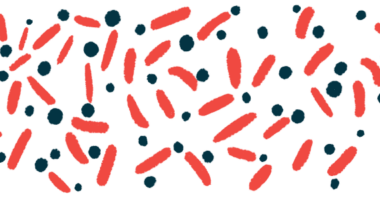Vet drug monepantel slows ALS, MND disease progression in trial
Developer PharmAust sees possible FDA approval for oral therapy in 2026

Daily treatment with monepantel — a drug widely used in veterinary medicine — was shown to reduce the rate of disease progression by as much as 58% in people with amyotrophic lateral sclerosis (ALS) or motor neuron disease (MND), according to top-line data from a Phase 1 trial.
The oral therapy also was found to be generally safe and well tolerated.
The data comes from the completed MEND trial (NCT04894240), which assessed the safety, tolerability, and pharmacological properties of monepantel in 12 adults with ALS or MND at two sites in Australia. MEND also sought to determine any preliminary signs of efficacy for the treatment candidate.
Researchers already have selected the optimal dose for further testing, which will be assessed in a Phase 2/3 clinical study expected to start in the third quarter of this year. That trial may support accelerated U.S. Food and Drug Administration approval in 2026, according to the therapy’s developer PharmAust.
“This study has shown oral monepantel to be safe and well tolerated by people with MND,” Susan Mathers, associate professor at Monash University and a principal investigator of the trial, said in a company press release. “Given the promising findings on preliminary efficacy markers, I look forward to progressing a Phase 2 study as soon as possible.”
Monepantel is widely used in veterinary medicine as a deworming agent. It has also been reported as a potent inhibitor of the mTOR signaling pathway, which plays a central role in cell growth and proliferation, as well as autophagy, a process by which cells recycle abnormal or defective components or molecules.
PharmAust scientists believe that by activating this pathway, the medication may help to clear the misfolded proteins that accumulate to toxic levels and contribute to disease progression in virtually all ALS patients.
“The release of the top-line Phase 1 MEND study results is an exciting milestone for PharmAust as we take a significant step towards helping people diagnosed with this rare and incurable disease,” said Michael Thurn, PhD, CEO at PharmAust.
Dosing determined during study’s extension part
The MEND trial included two groups of six participants each, all ages 18 to 75. One group received the medication at a low dose, of 2 mg/kg and 6 mg/kg, while the other was given a high dose — 4 mg/kg and 10 mg/kg. All doses were given as oral tablets once daily for 28 days. Dose escalations could then be offered every 28 days, based on recommendations from a safety management committee.
An interim trial analysis showed that blood levels of a nerve cell damage biomarker called neurofilament light chain remained stable in 11 of the 12 participants for as long as 8.7 months.
The newly reported data comes after all patients received the therapy for 10 to 16 months. After completing the main trial, all continued to receive monepantel in an open-label extension study (NCT06177431) for up to one year. In an open-label trial, both researchers and participants know the exact medication and dosage being given.
In this part, monepantel was given at a daily dose of 10 mg/kg, which “is estimated to produce the most robust mTOR inhibition while still being well tolerated,” the researchers wrote.
The treatment was deemed generally safe and well tolerated. While 56 treatment-emergent adverse events were reported, only three mild events were considered potentially related to treatment. No patient died during the study.
Regarding efficacy, no significant differences in disease severity, as measured by the ALS Functional Rating Scale-Revised (ALSFRS-R), were observed from before treatment to the end of the trial, indicating that monepantel slowed the rate of disease progression in these patients.
ALS trial comparison confirms slowing of disease progression
A comparison of data from study participants versus matched controls from previous ALS clinical studies showed that both the low and high doses of monepantel significantly lowered the rate of disease progression. The controls came from the PRO-ACT database, a large repository of data from people who participated in ALS clinical trials and observational studies.
Monepantel-treated patients had a monthly ALSFRS-R of 0.74 points, representing a 39% slowing in disease progression compared with the matched controls. The effect was more evident in the high dose group, where the rate of decline was 0.6 points per month, or 58% slower than the control group.
“I feel that the monepantel may have slowed my neurological deterioration,” said a MEND participant in the high-dose group. “My dosage was increased to 6 [mg/kg] several days ago. There appears to be no side effects with it.”
To know that we have potentially prolonged the lives of 12 patients [in this trial] is extremely satisfying and humbling.
Using a prognostic model, the researchers estimated that these benefits could translate in a meaningful survival extension, by 13.5 to 56.5 months depending on the severity of the disease at the time of treatment initiation. Approved treatments provide about two to nine months of additional life expectancy, the company said.
“To know that we have potentially prolonged the lives of 12 patients is extremely satisfying and humbling,” Thurn said.
The company plans to start a Phase 2/3 study to evaluate monepantel against a placebo in ALS/MND patients for 48 weeks (nearly one year). The main goal is to determine changes in disease progression and survival rates in both groups.








